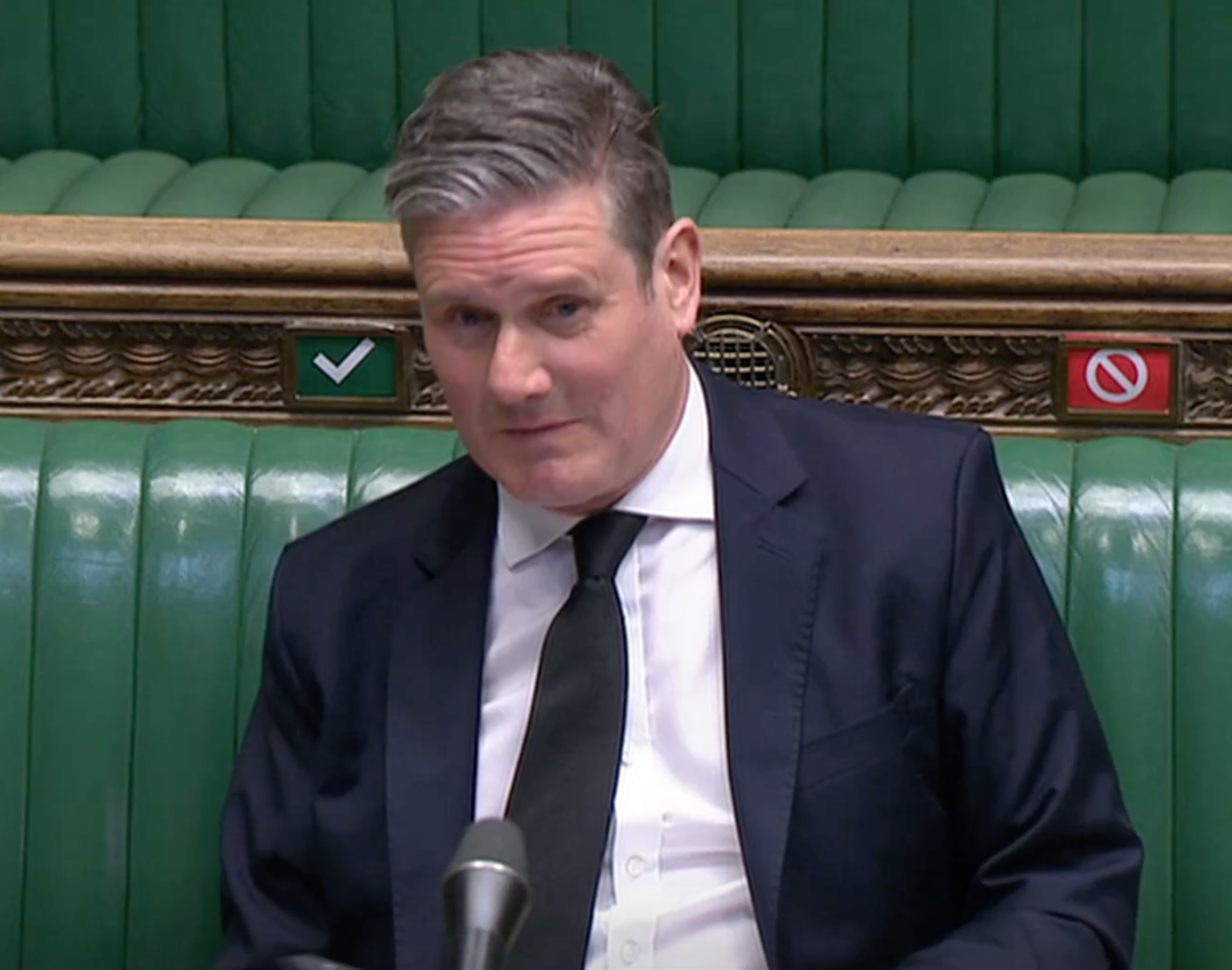Boris Johnson had no answers on Greensill – no wonder Keir Starmer looked so cheerful
The Labour leader relished the chance to embarrass the government at Prime Minister’s Questions, writes John Rentoul


Keir Starmer missed a trick at Prime Minister’s Questions. He was so keen to make the most of Boris Johnson’s embarrassment about the Greensill lobbying story that he forgot to ask any actual questions.
It was left to Ruth Cadbury, a Labour backbencher, to ask the prime minister when he last spoke to David Cameron. Johnson was stumped. “The honest truth... ” he began. “I cannot remember when I last spoke to Dave.” He went on to say he had had no contact with the former prime minister “about any of the matters that have been in the press”.
By calling him “Dave” while denying any recent contact, Johnson encapsulated why the “matters that have been in the press” are so awkward for him. He and Rishi Sunak, the chancellor, are keen to distance themselves from the alleged sins of their predecessors, yet in today’s exchanges Johnson claimed credit for the Conservatives in passing the 2014 Lobbying Act – when Cameron was prime minister and which does not seem to have prevented Cameron himself lobbying his successors for profit, if the allegations are true.
Starmer was so enthusiastic about exploiting his golden opportunity that he risked appearing to be enjoying himself too much. It was a relief to leave behind his usual mournful look, as he laughed off the prime minister’s “shoplifter’s defence” – that everyone else is nicking stuff. But Starmer was perhaps too gleeful when he set out why Labour said the Lobbying Act wouldn’t be tough enough: “Where did that legislation lead? Two years later: David Cameron camping out in the Saudi desert with Lex Greensill, having a cup of tea. I rest my case.”
The case for tightening up the rules on paid lobbying certainly appears to be unanswerable, but Starmer did not even try to suggest that Johnson himself was responsible for the current unsatisfactory state of affairs.
The Labour leader had decided to go for the bludgeon rather than the rapier. He started by condemning “the sleaze that is now at the heart of this Conservative government”. In case people didn’t get the point, he announced: “This is the return of Tory sleaze.” As if simply saying it would take Labour back to the glory days of opposition when John Major struggled against a wave of financial and sexual scandals before losing by a landslide.
Johnson has some advantages over John Major. He does not look like a defeated man, as Major did for much of the time after the humiliation of the pound’s ejection from the European exchange rate mechanism. He has a large majority in parliament, and there was little evidence in this afternoon’s debate that many Conservative MPs are sympathetic to the opposition’s case.
Only William Wragg, the independent-minded Tory chair of the Public Administration and Constitutional Affairs Committee, appeared critical. He described Cameron’s lobbying for Greensill as a “tasteless, slapdash and unbecoming episode”, but thought it was a “red herring” and a distraction from the questions that really need answering, including whether it was a breach of the rules for a senior civil servant to take a job with a private company. This was a reference to Bill Crothers, who had been the government’s chief procurement officer, and who was employed by Greensill while still a civil servant in 2015.
The prime minister will be relieved if the story goes in that direction – events that happened before he took office – rather than pursuing the involvement of Sunak and Matt Hancock, the health secretary.
But Johnson is going to have to order some dramatic-looking changes to the rules. He knows well that “Tory sleaze” is a powerful message in the hands of the opposition – even if they do look as if they are enjoying themselves too much.



Join our commenting forum
Join thought-provoking conversations, follow other Independent readers and see their replies
Comments